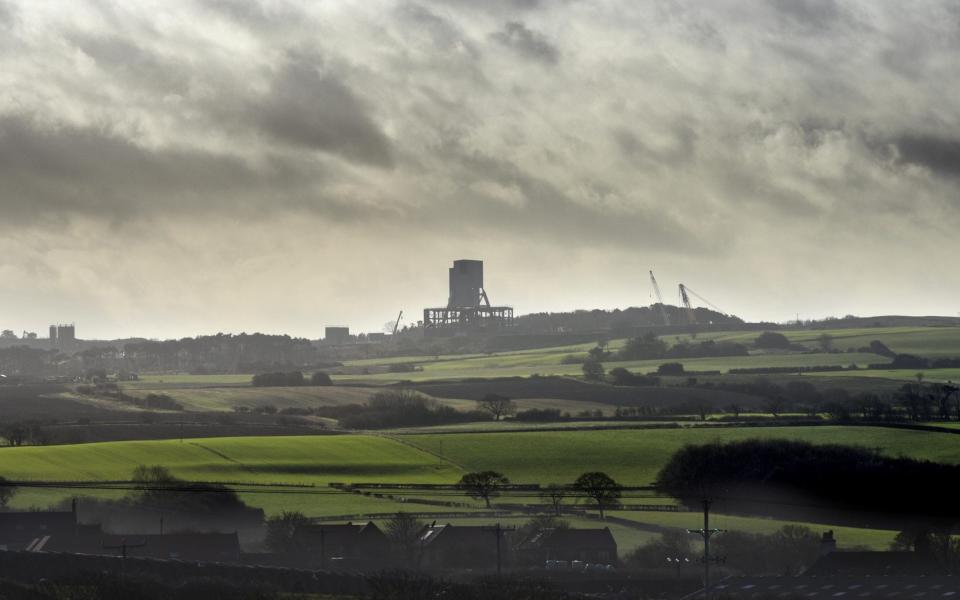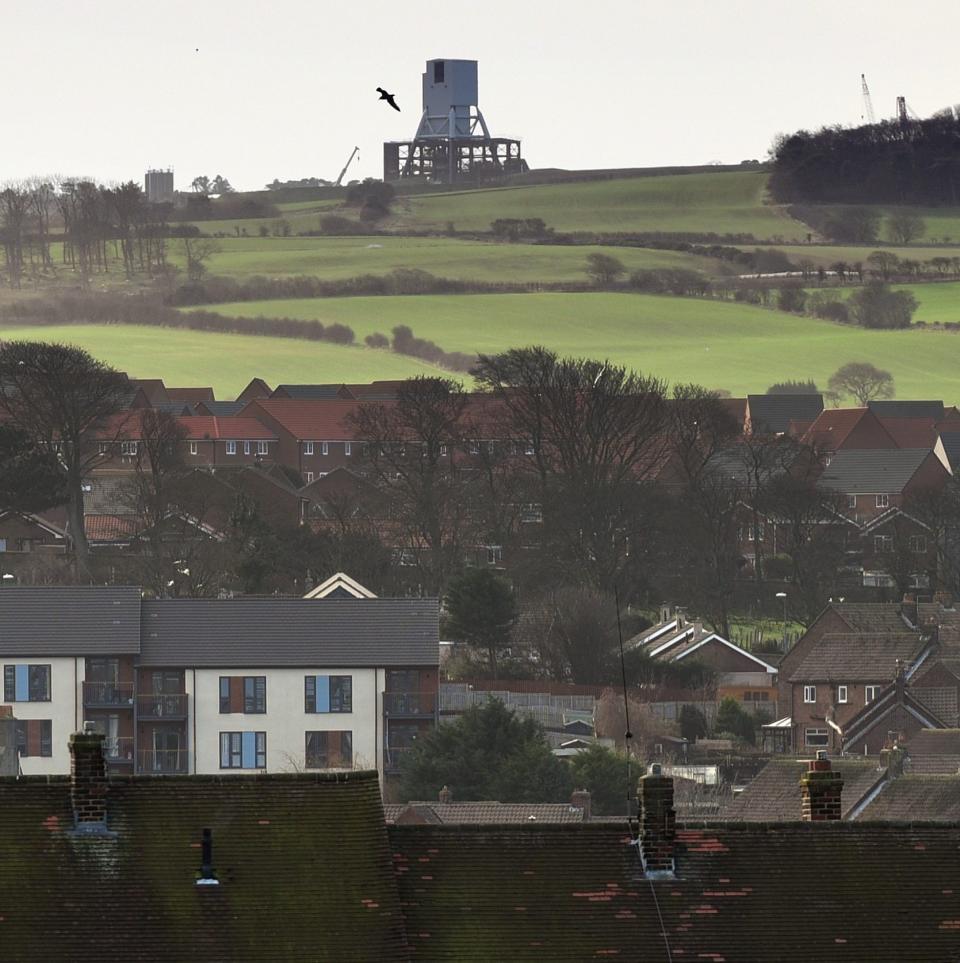Mining titan's bet on fertiliser jackpot under the North York Moors hits trouble

The team at Sirius Minerals’ and their hard-hatted miners drafted in from around the world had a stretching goal ahead.
It was 2018 and a target of May 2021 had been set at its headquarters on the outskirts of Scarborough, Yorkshire. Pushed internally and highlighted to investors, the month was when the mining start-up hoped its nearby diggers would first hit the rich seam of polyhalite - a type of fertiliser - running deep underneath the North York Moors National Park.
It was an ambitious goal - six months ahead of its base case at the end of 2021. But it would be well worth it: marking a significant milestone and helping towards its singular goal of first commercial fertiliser production by mid-2024.
Both the May 2021 target and the less stretching end-of-year target have been and gone, with no polyhalite yet produced. In late 2019 Sirius Minerals ran out of money and was bought by FTSE 100 mining giant Anglo-American for £405m - a steep cut to its £1.8bn stock market value less than two years earlier.
Thousands of private, individual shareholders, many of whom lived locally, lost huge sums amid the takeover. They had bought into the company’s powerful narrative of rejuvenating the area by creating thousands of jobs and bringing back deep mining years after the coal pits closed.
Anglo-American is still going ahead with the Woodsmith project and expects to invest a further $700m (£513m) this year. It has flagged changes to the mine’s design and capacity and a "more conservative schedule" amid an extensive review. It now does not plan to produce a full budget and schedule until the end of this year.
But sources familiar with the project cast doubts - dating back to before 2020 - over whether Sirius Minerals’ time-frame was ever realistic, given the complexity and size of the mine. It raises questions over one of Britain’s biggest infrastructure projects and retail investment blow-ups in recent years.
Mining fertiliser in a Yorkshire national park is no easy task. The Woodsmith mine involves burrowing two main 1.5km-deep shafts and digging a 37km-long tunnel north-west to take the polyhalite up to Wilton, near Redcar, for processing and export globally.

Led by chief executive and founder Chris Fraser, it got off to a good start. The ex-banker, born in Somerset before growing up in Australia, struck up deals with landowners, won over planning authorities and secured big backers alongside its army of retail shareholders.
Gina Rinehart, thought to be Australia’s richest woman, invested £245m alongside plans to buy 20,000 tonnes a year of the mine’s products for her farms.
In 2017 Sirius graduated from AIM to the FTSE 250 and in mid-2019 told shareholders it had raised $825m, saying it was on track to “achieve first polyhalite in 2021" and “commercial production on time and in line with its cost schedule.”
But things rapidly unravelled. In September 2019, Sirius blamed market conditions as it pulled plans to raise $500m in bonds, key to unlocking a $2.5bn credit line from JP Morgan. The Government would not back the project with a guarantee, bosses argued, as they launched a strategic review.
Two months later, bosses came back to the stock exchange with a new plan and to report talks with “potential strategic partners and debt investors” to raise $600m. It said a 23-month timeframe to reach polyhalite could potentially be cut between three to seven months. The second quarter of 2022 was pinpointed as a target date.
That has also been called into doubt, however. DMC, the contractor hired by Sirius in 2018 to sink the main shafts on the project, is understood to have carried out a review in 2020, after Anglo took over. It is believed to have found that first polyhalite could realistically take more than three-and-a-half years - indicating August 2024.
DMC is believed to have concluded that a schedule developed with external consultants in 2019 missed out parts of the work or overestimated how quickly things could be done, including on lining the shafts, grouting, and getting crews up to speed on using equipment.
The findings are also understood to have raised questions about the impact of heat in the shaft, saying this could make it difficult to sink beyond 900m. The risk of water in shafts from abandoned boreholes could also trigger delays, it warned. The company had worked on similar deep shafts for BHP’s giant Jansen fertiliser project in Canada.
Anglo American’s crop nutrient’s business, the division which housed Sirius post-takeover, ended its contract with DMC in August 2020, around the time it is claimed the contractor was preparing to present its findings. A spokesman at Anglo said at the time the new structure “provides us with simpler internal processes and allows us to better manage [the work].”
It is claimed others working on the project challenged Sirius’s time-frame even before DMC’s review. Sources said AMC, a shaft-sinking contractor which had been working with Sirius in 2018, put forward a time-frame longer than wanted. Sirius ended work with AMC in 2018 before finalising a contract, hiring DMC instead in February 2018.
There were separate problems along the way. In May 2019, Sirius, working with other contractors, used a special machine to burrow one 120m section of the project. The 115.2m reached was hailed as a “world record” for the machine but the hole was not as straight as it should have been, sources claimed, and there were calls for adjustments to accommodate it. Some jokingly refer to it as the “banana shaft”. One former worker calls it "a failure spun as a success".

When Anglo-American took over in March 2020, boss Mark Cutifani hailed a “new chapter” for the project and in February the next year Anglo said it was “working through” detailed scheduling of the two main shafts. It planned to present final capital and schedule estimates for the whole project to the board in mid-2021.
Then, in July 2021, Anglo said it was “adjusting the shaft schedule and ventilation to our standards,” and the budget and schedule would be finished in February 2022.
In December 2021, it said it planned to “optimise the configuration of the project,” to increase production capacity and use a more efficient mining method, with the final budget and schedule now due at the end of 2022.
At the time Cutifani said he was “very happy” with the project, but was “going to take the necessary time to get every aspect of the design right.”
He is leaving the company after nine years in April with successor Duncan Wanblad, an insider reported to have driven Anglo’s deal to buy Woodsmith, tasked with taking the project forward.
Fraser moved across to Anglo-American after the takeover but last month stepped aside from leading Woodsmith. He is being replaced by Tom McCulley, who has led Anglo’s giant Quellaveco copper project in southern Peru.
Shareholders in the former Sirius Minerals, meanwhile, are still feeling burned by the collapse of the company. Sharesoc, which represents retail investors, said last month it has been “working with potential legal partners to consider potential claims” to recover losses, stressing there is “no guarantee” a viable claim will be found.
Some who worked on the project have sympathy with their anger.
“It wouldn’t necessarily bother me, but these were individual people I would drive past every morning,” says the former worker. “How would I feel if I was them?”
Anglo-American and DMC both declined to comment.

 Yahoo Finance
Yahoo Finance 